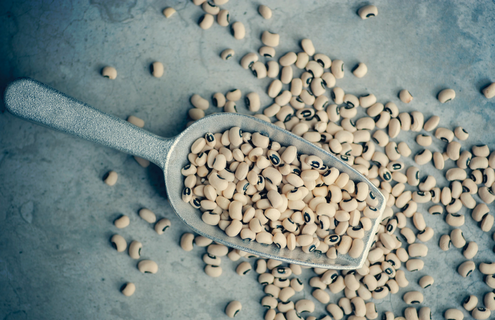
You may be thinking: “Another diet? How is this one any different?”
Shawn Richardson, NHA, Director of Nutrition and Environmental Services at APD, wouldn’t make a food choice lightly. He and his team are responsible for serving 50 patient meals a day and up to 200 meals daily through Alice’s Cafe. His choice? The Mediterranean Diet.
Related article: Four Steps to Brain Health | News & Stories | Alice Peck Day Memorial Hospital
“The Mediterranean Diet is an eating pattern that has been around for a very long time. It is not so much a ‘diet’ bound by a set of hard-and-fast rules — it is more of an eating style that incorporates ingredients traditionally eaten by people who reside along the banks of the Mediterranean Sea,” Richardson said.
Mediterranean Diet
Beans are a full of protein and fiber and a staple on the Mediterranean Diet. If you are wondering if you should choose dried beans or canned beans, here are some tips.
- One bag of dried beans makes 12 half cup servings. One can of beans makes 3 half cup servings.
- You can freeze the beans you don’t use in serving-size zip lock bags.
- Dried beans are cheaper per serving.
- Dried beans contain much less sodium and no BPA, an industrial plastic used in many commercial products.
- The soaking process for dried beans reduces abdominal gas.
Richardson uses the Mediterranean Diet as the basis of the hospital’s meals for patients, staff, and visitors. “It has been shown to reduce the risk of heart disease, diabetes, and promote brain health,” he said.
Richardson notes the Mediterranean eating pattern is possible with just a few simple tweaks to your shopping list:
- Make vegetables the hero of your dish. Fill your plate with less meat and more vegetables.
- Go meatless at least once a week. Cook more meals with beans (see sidebar).
- Enjoy fish and seafood twice a week. Oily fish like salmon, mackerel, and sardines are good for your heart and brain.
- Eat some dairy. Enjoy plain Greek yogurt and small amounts of cheese.
- Switch to whole grains. Skip white, refined grains and choose barley, brown rice, and oats.
- Include fresh fruit. Eat it as a snack and enjoy it for dessert.
- Let extra virgin olive oil become your go-to oil. Use it for cooking and salad dressings. Use extra virgin for salad dressings and normal olive oil for cooking.
- Seek out healthy fats. Opt for avocados, nuts, and seeds.
- Flavor your food with herbs and spices. Give up salt (or give it a break).
- Save red meat and sugary desserts for special occasions. “Your heart will thank you for it!” Richardson said.